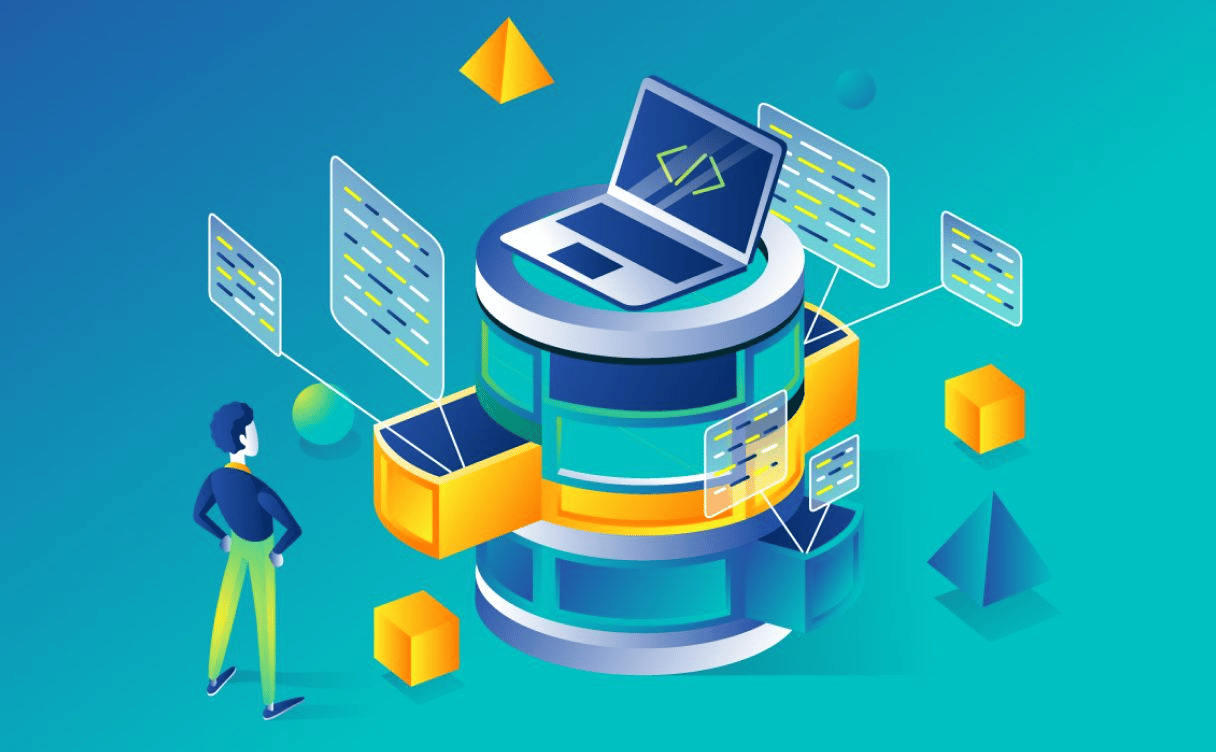Alexandre Brianceau is CEO of Rudder, a French software vendor for infrastructure automation. Hired six years ago as Engineering Manager, he had to work hard to gain the trust of founders, developers and direct teams, before becoming CEO in 2020. What were the key challenges he had to overcome to get there? He gives us a heads-up before speaking at The Jam, Scaleway’s engineering leadership event on May 23, 2023.
Tell us about your experience upon joining Rudder…
I joined in 2017, as Engineering Manager. The long term vision was to become CEO… but that objective wasn’t clearly expressed by the founders. They hired me for my empathy, and my desire to do something good with the product. The idea was to take down barriers bit by bit, to drive projects forward as well as possible.
It wasn’t easy for me, as I’m not a leader, nor a developer… so I had a lot to learn. There was a great deal of ‘learning whilst doing’ at first.
Like building a car whilst driving it?
Yes, and not knowing where you’re going, in what brand of car, with which passengers and so on! I tried to be lean and inclusive, but it was more about determining the limits of leadership: identifying the precise moments you should pass the baton and delegate. Today, the founders trust me to tell the company story alone, but it took a while to gain that trust. I still needed to prove to the founders that I’d fit with their culture. We’re in a niche, so we have a very narrow market share and a lot of expertise.
How did you gain their trust?
At first, I just tried to help as much as I could. I built trust by helping people, by helping them to understand, for example by rephrasing stuff to make sure they got it. Back then, the culture was “find a problem, fix it yourself”.
It wasn’t all easy, of course. I hired someone to help me with admin and legal issues, but my then-CEO took over management of that person, because he thought I wasn’t ready to manage her, and he didn’t recognize that he needed to step back and delegate more.
Sometimes I didn’t trust the founders about the future, and was afraid to take the lead, especially for sales. We didn’t have the money to hire salespeople, so I had to go and do sales myself. After around six months, it was clear I was terrible at it! Marketing is also a huge challenge for me.
So in my second and third years, I made a plan of who we needed to hire. By then, thanks to a strong audit document and my clearly-expressed vision for the next few years, I’d gained the founders’ trust, and so in 2019 managed to hire one sales, and one marketing person.
So it was plain sailing from then?
No, because then COVID happened! The then-CEO went off to work from Dordogne. He and I disagreed on how to manage, and I wanted more autonomy. I saw no future with him as CEO, and he saw no future for the company without me. So I took on his role. He’d ultimately become Head of Finance, and is there to support my vision. Our way of working together is very fluid now.
How did you make your own mark as CEO?
I continued the collaborative culture that the founders first put in place, but in a delegative way. I also moved to Nantes, so I’m a remote CEO. It’s a different way of working, which demands a lot of written processes, so that there’s a trace of all decisions.
When you get to a CEO level, it’s important that you comply with the previous management style before you start making changes. Then you can start with quick wins; then start adapting, and building something yourself, with your own tools and processes, i.e. making the function truly yours.
Now I’m facing what are probably quite standard CEO challenges: the teams look to you for leadership, but you look to them to be autonomous. CEOs aren’t the messiah! I don’t have all the answers, nor do I have the time I used to. So you need to delegate, as you can’t keep doing everything you were doing before.
So you eased into the CEO role progressively. Despite that, did you ever doubt your legitimacy?
I’m not an expert in software development. And back then, I knew nothing about corporate, legal or financial issues. I didn’t even know what EBITDA means! What I did know upon arriving at Rudder was how to manage up to 30 people. But not in a HR sense, just in a product management sense.
You always have doubts about yourself, but you get over them by learning, and by working with people that are better than yourself. I love learning, and constructive conversations. I’m not good at math or coding, but I’ve always had a lot of friends who helped me.
For my whole career, I’ve always been the average guy, not the best one. But I’ve always known how to talk to people, and take leaps of faith. For example, I’m not that good at speaking English, but I’m understood. Overall, I make mistakes, but people get enough coordination and vision from me to make things work.
Sometimes I’m very happy with my successes, but at other times I feel down, because I don’t know if my vision is right. The fact is sometimes it doesn’t work, but if we couldn’t have tried harder, that’s fine. It’s test & learn, so even failure can even be good. And our sales increased by 50% last year, so we must be doing something right!
What are your specific tips for dealing with perfectionist engineer mindsets?
I’m not the best at that! I don’t even think I’m here thanks to my engineering background, but due to the fact I’d managed millions of euros in past roles, at Bull (now ATOS) and at French Customs. Not forgetting my dance background… (I used to do 40 hours of ballroom dancing per week!) In big companies as in dancing, even if you’re not the best, you have to look the best!
That said, my style of perfectionism is progressive. I try to work out what the other person is afraid of, and then deconstruct that fear. For example, for that client sales proposal, should we send an email now, or wait five days to be able to send a fancy PDF document? In cases like this, we’ll take a quick, small step first (send the email) and then work out how we can template for next time, so we can make the result bigger and better in the future (the PDF). Like an MVP.
I also find people are more comfortable when a decision is shared, rather than imposed. So in this case, when they can say “Alexandre and I decided to send the client an email”.
In short, I work well under pressure, so it’s OK to be perfectionist. But it’s also OK to take some intermediate steps to get there.
Discover more essential engineering insights from Alexandre IRL at The Jam, May 23 2023 in Paris! Laurent Bernaille, Principal Engineer at Datadog will also speak. RSVP here to secure your seat…



